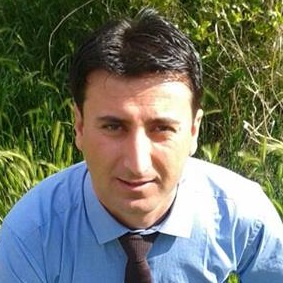A Night in Kobani by Abdulslam Mohammad Khanjar, Syria
 On September 14, 2014, the Siege of Kobani by the Islamic State of Iraq and Syria (ISIS) was underway. Already, the people from the villages near Kobani were leaving and moving toward the Turkish Border.
On September 14, 2014, the Siege of Kobani by the Islamic State of Iraq and Syria (ISIS) was underway. Already, the people from the villages near Kobani were leaving and moving toward the Turkish Border.
Eight-year-old Jwan had gone with his cousin, 10-year-old Jan, to play in the nearby play yard. Back at home, the family was gathering all the belongings they could carry. TV news was keeping them abreast of the advancement of ISIS toward the city. The family collected clothing, documents and essentials but had to leave behind a home, all they had worked for and a lifetime of memories.
Jwan’s father, Mr. Ali, started the farm tractor. His uncle, Sipan, started the automobile. They loaded the vehicles with all they could carry. The family members got into the vehicles to start the journey toward the Turkish Border, away from the advancing ISIS marauders and certain slaughter. Uncle Sipan thought Ali had the children. Ali believed that Uncle Sipan had put them into his vehicle. Sipan stopped at the Turkish Border crossing point to wait for Ali driving the tractor. Upon the arrival of Ali at the crossing point, they discovered the children were neither in the automobile nor the tractor. Horrified, the family realized the two children had been left behind in the confusion and their haste to evacuate.
Back in the play yard, where Jwan and Jan were enjoying themselves, other families were calling their children in so that they could leave. The shelling was now nearing the city and could be heard clearly. The sound of warplanes filled the sky. The children could see them overhead, and hear the thunder of artillery. Overcome with fear and anxiety, they fled the play yard for what they thought would be the safety of their home.
Once home, they found only emptiness, no mother’s arms to comfort them. Only the family dog was there to share their distress. The children found the doors closed and saw that everything had been left in disarray by the hastily fleeing family. In despair, they took shelter along with the dog in a small structure in the corner of the house garden. Tears bathed their faces as the battle came nearer and nearer.
The families were still in shock that Jwan and Jan were not with them, that they were stuck back in Kobani. Frantic, they knew the children had to be rescued.
Under the cover of darkness, Uncle Sipan returned to find the children. The advancing ISIS fighters had nearly reached Kobani as Uncle Sipan drove along the road with the lights off to avoid detection by ISIS, to avoid being the target of their bullets and brutality. Once he reached the Kurdish YPG checkpoint, Uncle Sipan anxiously explained their dilemma. Two YPG soldiers accompanied him back to his home in Kobani. He called out: “Jwan!” “Jan!” There they were, hiding and terrified along with their dog. Uncle Sipan hastily loaded the frightened children and dog into his vehicle.
Still under the cover of darkness, Uncle Sipan, Jwan and Jan finally arrived back at the crossing. Greatly relieved, the families were reunited for the journey into Turkey and, ultimately, to the Kurdistan Regional Governorate in Iraq.
In Kurdistan, both Jwan and Jan are receiving psychological care to recover from the trauma they experienced that day. The scars run deep and, even now, Jwan refuses to go to sleep without wearing his shoes. In case of an attack, he wants to be prepared to run. He keeps some belongings packed by the door. At night, Jwan only sleeps with the lights on.
So many, many children have lived with war – losing members of their families, friends, treasured possessions, and finding only a seemingly permanent displacement. They have seen the horrors of war – the destruction, the torture, the slaughter, the maimed and the dead. Daily, they live with the sights, the sounds and even the smells of war and its horror; the foreboding and the dread of what the next day or, the next hour, might bring.
These are the invisible wounds to the children that will not heal. The visions of war, feelings of trepidation and anxiety continue to haunt and shape them and their future.
* The names in this story have been changed.


Leave a Comment
Want to join the discussion? Feel free to contribute!